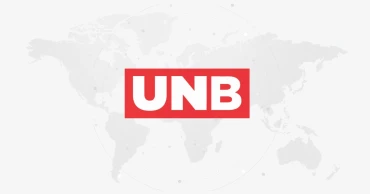Fund
UN experts for immediate funding to avert food ration cuts for Rohingyas
UN experts on Thursday warned about catastrophic consequences for Myanmar Rohingya refugees living in camps in Bangladesh if life-saving food aid is slashed and issued an urgent plea for donations to the UN World Food Programme (WFP) Rohingya Refugee Response.
"The planned rations reductions are the devastating consequence of the international community's failure to provide funding for initiatives that address the fundamental needs of Rohingya refugees. Rations will be slashed for Rohingya refugees starting in a few weeks, just before Ramadan. This is unconscionable," the experts said.
The WFP indicated that it would reduce rations for Rohingya refugees by 17 percent in March and said if no new funding commitments were made by April – a new round of deeper cuts would have to be made. It is appealing for $125 million in funding to avoid ration cuts.
"If these cuts are made, they will be imposed on vulnerable people who are already food insecure. Acute malnutrition levels remain high, and chronic malnutrition is pervasive among the Rohingya refugee population in Bangladesh, with more than a third of children stunted and underweight," the UN experts said.
"The repercussions of these cuts will be immediate and long-lasting, as refugees remain almost entirely dependent on this assistance for their nutritional needs," they said.
"The most vulnerable, including children under five, adolescent girls, and pregnant and breastfeeding mothers, will be particularly exposed."
"The Rohingya, survivors of genocidal attacks by the Myanmar military, are now further victimised by the failure of the international community to ensure their basic right to food," the UN experts said.
Reductions in vital food assistance can make refugees more desperate, which could fuel further violence and unrest in the camps. This could also lead to myriad human rights concerns, such as a heightened risk of human trafficking, particularly of children and girls, and more refugees embarking on perilous boat journeys.
"While many states have called for justice and accountability for the Rohingya, those in the camps need more than words and statements of solidarity. Rohingya refugees need immediate action from the international community to ensure that these cuts – and their generation-spanning consequences – are avoided. The stakes could not be higher," Michael Fakhri, special rapporteur on the right to food, and Thomas Andrews (US), special rapporteur on the situation of human rights in Myanmar, said.
Read more: Rohingya response: Sweden announces $7.6m for energy, environment programme
3 years ago
EDF alternative: Tk10,000 crore fund to be operated through 49 banks
Bangladesh Bank (BB) on Monday signed a Participation Agreement with 49 banks to ensure adequate liquidity for the export-oriented sector.
Earlier the central bank formed ‘The Export Facilitation Pre-financing Fund (EFPFA)’ of Tk10,000 crore to assist the export sector amid the slowdown of global economic growth. The entrepreneurs can borrow from this fund for an interim period before getting foreign buyers' payment against the order.
From the newly constituted fund of Tk10,000 crore, exporters will be given loans in local currency. After taking loans in taka, they (exporters) can convert them into foreign currency and open an LC. As a result, it will act as an alternative fund to the export development fund (EDF), where exporters get loans in foreign currency, acting as a drag on the country's forex reserves.
It drew attention after the IMF insisted the EDF of USD $7 billion be counted as encumbered reserves - not as part of the country's liquid foreign exchange reserve.
The executive director and spokesperson of BB Mesbaul Haque told UNB that Governor Abdur Rauf Talukdar had a meeting with the MDs of the banks on Monday. Separate deals were signed with 49 banks in the meeting.
Read more: BB set to announce new monetary policy
As per the deal, banks will be able to borrow from this fund at 4 percent interest rate, he said.
After the meeting, Chairman of Association of Bankers, Bangladesh (ABB) and Managing Director of BRAC Bank Salim RF Hossain said that the banks will benefit through the formation of the fund in local currency.
“We applaud this initiative. We have entered into an agreement with the central bank to avail loans from the Export Facilitation Pre-financing Fund,” he said.
After receiving the export work order from the buyer, entrepreneurs will be given loans from this fund to import the required raw materials for the exporting sector. Loans will be given from this fund at a maximum interest of 4 percent.
In respect of this loan, no fee or commission can be collected in excess of the charge or commission fixed by the central bank.
3 years ago
UN climate talks drag into extra time with scant progress
Negotiators say they have struck a potential breakthrough deal on the thorniest issue of United Nations climate talks in Egypt: the creation of a fund for compensating poor nations that are victims of extreme weather worsened by rich countries’ carbon pollution.
Several cabinet ministers from across the globe told The Associated Press that agreement was reached on a fund for what negotiators call loss and damage. It’s a big win for poorer nations which have long called for cash — sometimes viewed as reparations — because they are often the victims of climate disasters despite having contributed little to the pollution that heats up the globe.
“This is how a 30-year-old journey of ours has finally, we hope, found fruition today,” said Pakistan Climate Minister Sherry Rehman, who often took the lead for the world’s poorest nations. One-third of her nation was submerged this summer by a devastating flood and she and other officials used the motto: “What went on in Pakistan will not stay in Pakistan.”
If an agreement is accepted it still needs to be approved in a unanimous decision later Saturday. But other parts of a deal, outlined in a package of proposals put out earlier in the day by the Egyptian chairs of the talks, are still being hammered out as negotiators head into what they hope is their final session.
There was strong concern among both developed and developing countries about proposals on cutting greenhouse gas emissions, known as mitigation. Officials said the language put forward by Egypt backtracked on some of the commitments made in Glasgow aimed at keeping alive the target of limiting global warming to 1.5 degrees Celsius (2.7 Fahrenheit) since pre-industrial times. The world has already warmed 1.1 degrees Celsius (2 degrees Fahrenheit) since the mid 19th century.
Some of the Egyptian language on mitigation seemingly reverted to the 2015 Paris agreement, which was before scientists knew how crucial the 1.5 degree threshold was and heavily mentioned a weaker 2-degree Celsius (3.6 degrees Fahrenheit) goal, which is why scientists and Europeans are afraid of backtracking, said climate scientist Maarten van Aalst of the Red Cross Red Crescent Climate Centre.
Ireland’s Minister for the Environment Eamon Ryan said: “We need to get a deal on 1.5 degrees. We need strong wording on mitigation and that’s what we’re going to push.”
Still, the attention centered around the compensation fund, which has also been called a justice issue.
Read more: COP27: Bangladesh among first recipients of Global Shield financial support
“There is an agreement on loss and damage,” Maldives Environment Minister Aminath Shauna told the AP early Saturday afternoon after a meeting with other delegations. “That means for countries like ours we will have the mosaic of solutions that we have been advocating for.”
New Zealand Climate Minister James Shaw said both the poor countries that would get the money and the rich ones that would give it are on board with the proposed deal.
It's a reflection of what can be done when the poorest nations remain unified, said Alex Scott, a climate diplomacy expert at the think tank E3G.
“I think this is huge to have governments coming together to actually work out at least the first step of ... how to deal with the issue of loss and damage," Scott said. But like all climate financials, it is one thing to create a fund, it's another to get money flowing in and out, she said. The developed world still has not kept its 2009 pledge to spend $100 billion a year in other climate aid — designed to help poor nations develop green energy and adapt to future warming.
“The draft decision on loss and damage finance offers hope to the vulnerable people that they will get help to recover from climate disasters and rebuild their lives," said Harjeet Singh, head of global political strategy at Climate Action Network International.
The Chinese lead negotiator would not comment on a possible deal. The U.S. negotiations office, where special envoy John Kerry is sick with COVID-19, also declined to comment. China and the U.S. are the two biggest carbon polluters. European negotiators said they were ready to back the deal but declined to say so publicly until the entire package was approved.
The Egyptian presidency, which had been under criticism by all sides, proposed a new loss and damage deal Saturday afternoon and within a couple hours an agreement was struck but Norway's climate and environment minister Espen Barth Eide said it was not so much the Egyptians but countries working together.
According to the latest draft, the fund would initially draw on contributions from developed countries and other private and public sources such as international financial institutions. While major emerging economies such as China would not initially be required to contribute, that option remains on the table and will be negotiated over the coming years. This is a key demand by the European Union and the United States, who argue that China and other large polluters currently classified as developing countries have the financial clout and responsibility to pay their way.
The planned fund would be largely aimed at the most vulnerable nations, though there would be room for middle-income countries that are severely battered by climate disasters to get aid.
An overarching decision that sums up the outcomes of the climate talks doesn't include India’s call to phase down oil and natural gas, in addition to last year’s agreement to wean the world from “unabated” coal.
Read more: COP27: Bangladesh to reiterate call to materialize $100bn pledged for developing countries
Several rich and developing nations called Saturday for a last-minute push to step up emissions cuts, warning that the outcome barely builds on what was agreed in Glasgow last year.
It also doesn’t require developing countries such as China and India to submit any new targets before 2030. Experts say these are needed to achieve the more ambitious 1.5 degrees Celsius goal that would prevent some of the more extreme effects of climate change.
Throughout the climate summit, the American, Chinese, Indian and Saudi Arabian delegations have kept a low public profile, while European, African, Pakistan and small island nations have been more vocal.
Many of the more than 40,000 attendees have left town, and workers started packing up the vast pavilions in the sprawling conference zone.
U.N. climate meetings have evolved over the years to resemble trade fairs, with many countries and industry groups setting up booths and displays for meetings and panel discussions.
At many stands, chairs were stacked neatly ready for removal, and monitors had been taken away, leaving cables dangling from walls. Pamphlets and booklets were strewn across tables and floors. Snack bars, which the Egyptian organizers said would remain open through the weekend, were emptied out.
At the youth pavilion, a gathering spot for young activists, a pile of handwritten postcards from children to negotiators was left on a table.
“Dear COP27 negotiators,” read one card. “Keep fighting for a good planet.”
3 years ago
No government-funded overseas tours for public sector employees
The government on Wednesday imposed a bar on foreign travels of all officers and employees of state-owned organisations under its operational and development budget amid dwindling foreign exchange reserves and the current global context.
The bar on foreign tours will apply to all government officials, working at different ministries, divisions, directorates, departments, offices, public sector corporations, state-owned, autonomous and semi-autonomous companies until further notice, the Finance Division said in a notification.
However, taking permission from the government, the officials will be able to go abroad for education, training and workshop if expenses are covered by development partners and other countries, it added.
Earlier, they were previously barred from travelling abroad due to the ongoing global crisis and post-Covid economic recovery.
Read more: $4.5 billion loan: IMF reaches preliminary agreement with Bangladesh
In May, the finance ministry, in an order, asked all government, semi-government, and autonomous organisations, together with government banks and financial institutions, to restrict their employees' foreign tours.
Read more: BB halts foreign trips of its officials, employees
3 years ago
BFSA donates Tk 32.50 lakh for Ashrayan project
The Bangladesh Foreign Service Association (BFSA) has donated Tk 32.50 lakh to build homes for the homeless under the Ashrayan project of the government that is being run out of the Prime Minister’s Office (PMO).
BFSA president Sabbir Ahmed Chowdhury handed over the cheque to senior secretary of PMO MD Tofazzel Hossain Miah on Thursday.
The project director of Ashrayan-2, BFSA general secretary and treasurer were present during the occasion.
Earlier, BFSA had donated the funds to build 10 houses for landless people under the same project.
Also read: Grade-3 student Jannat now dreams to be a doctor getting Ashrayan house
3 years ago
WB approves $500 million credit to bolster flood preparedness in Bangladesh
The World Bank on Friday approved a loan of $500 million to help Bangladesh improve disaster preparedness against inland flooding in 14 flood-prone districts, benefiting over 1.25 million people.
The Resilient Infrastructure for Adaptation and Vulnerability Reduction (RIVER) project will help Bangladesh reduce vulnerability to riverine and flash floods by constructing over 500 multipurpose flood shelters, access roads, and climate-resilient community infrastructure, the World Bank said in a release.
In normal times, the flood shelters will operate as primary schools and they will be equipped with solar energy systems, water, sanitation and hygiene facilities that cater to the needs of women and vulnerable populations.
The project will also help strengthen the capacity of communities and government agencies to prepare and respond to floods and undertake behavioural change interventions.
Also read: UN announces $5 million more flash flood relief for Bangladesh
Mercy Tembon, World Bank Country Director for Bangladesh and Bhutan, said that the heart-wrenching flood situation in Sylhet region is a stark reminder of the increasing risks of climate change to development -- more frequent, unpredictable and intense natural disasters.
“Building on our five-decade long partnership of improving disaster risk management in the coastal region, this project will help Bangladesh improve disaster preparedness in the non-coastal flood-prone areas. It will also support the country’s transition from a disaster response to a disaster risk management approach."
Every year, floods and riverbank erosion in By affect about one million people but in some years, the numbers can be substantially higher.
The project will help save lives and properties in the highly flood-prone districts in the Teesta-Brahmaputra-Jamuna, the Padma, and the Surma-Meghna river basins -- Nilpamari, Lalmonirhat, Kurigram, Rangpur, Gaibandha, Bogura, Pabna, Sirajganj, Rajbari, Faridpur, Gopalganj, Madaripur, and Sunamganj, Habiganj.
Ignacio Urrutia, World Bank team leader for the project, said that Inadequate evacuation facilities for people and their livestock in the highly flood-prone areas not only leads to the loss of lives and livelihoods, but it also hampers the ability to provide adequate relief.
Also read: President Hamid calls for stepping up flood relief distribution
“This project will contribute to developing evacuation facilities that provide WASH, apply gender-sensitive design, and provide sufficient space for community members and livestock, while at the same time benefiting the community in regular times.”
The project will also develop a database on the availability and condition of flood shelters, which will be critical for disaster preparedness and future investment planning.
The project will support the Bangladesh Delta Plan 2100, a long-term plan to achieve a safe, climate-resilient, and prosperous delta, as well as the World Bank Group’s Climate Change Action Plan 2021-2025.
3 years ago
Indian LOC: Fund disbursement nearly doubles in one year
The pace of fund disbursement under the India-Bangladesh Governmental Lines of Credit (LOC) has nearly doubled in one year, as USD 238.68 million has been disbursed in this time, despite the serious challenges presented by the COVID-19 pandemic.
Total disbursement will soon reach the $1-billion milestone, a press release of the Indian High Commission said on Monday.
It was noted that the India-Bangladesh development partnership has grown significantly in recent years. Bangladesh is India’s largest development partner under its Line of Credit programme with total commitment under LOCs being USD 7.862 billion.
The 2nd Meeting of the High-Level Project Monitoring Committee to review projects under the India-Bangladesh Governmental Lines of Credit (LOC) was held on Sunday at the Economic Relations Division, Ministry of Finance of Bangladesh.
It was co-chaired by High Commissioner of India Vikram Doraiswami and Fatima Yasmin, Secretary, Economic Relations Division of Ministry of Finance. Delegates included officials of the Economic Relations Division, the Prime Minister’s Office, Ministry of Foreign Affairs, National Board of Revenue, Finance Division and Ministry of Home Affairs on the Bangladesh side and High Commission of India and the Exim Bank of India, through which the LOCs are being administered.
This bilateral mechanism is one of several joint initiatives to further expedite execution of projects, by addressing procedural issues and suggesting the way forward.
The two sides reviewed the status of implementation of the decisions taken by the 1st High Level Project Monitoring Committee Meeting held on January 3, 2021.
Both sides noted with great satisfaction that significant headway has been made under the GoI LOC framework, it said.
Both sides discussed the entire spectrum of implementation issues during the meeting, including the need for standardization of the interpretation of GoI LOC processes and procedures by various Project Authorities of Bangladesh, expediting project preparation and Development Project Proposals (DPP), rationalizing bid qualification criteria, shortening and simplification of bill processing cycles, expediting award of finalized contracts, simplifying visa issuance procedures etc.
The High Level Committee also identified the next steps to be taken by the Technical Committee, which would meet in due course to discuss issues at an operational level.
3 years ago
Merchant Bankers seek Tk 10,000 crore to sustain capital markets
The Bangladesh Merchant Bankers' Association (BMBA) sought a special fund of Tk 10,000 crore to overcome liquidity crisis in the capital market.
The BMBA has urged to provide fund assistance on easy terms through the Capital Market Stabilization Fund (CMSF) for a period of 5-7 years.
The organization sent a letter to Bangladesh Securities and Exchange Commission (BSEC) on Monday in this regard.
The BMBA president Sayedur Rahman told UNB that listed banks and merchant banks are unable to invest much money in the capital market despite their desire due to limitation of investment segment by the regulator.
Also read: Suspicious Transaction Reporting up by 43.67%: BFIU
“So, we are seeking a special fund of Tk 10,000 crore for the intermediaries. We hope that the Commission will give us this money by issuing bonds through the CMSF to support the market,” he added.
BMBA stated in the letter the market had recently become volatile despite many initiatives by the BSEC. This has put a pressure on investors to sell their shares. Adequate cash assistance is needed to restore normalcy in the market in this situation, Sayedur said.
If the funds are properly invested by market intermediaries, the current problems will be solved and the market liquidity crisis will be alleviated, BMBA said in the letter.
Also read: WB approves $120 mln loan to develop climate smart agriculture, water management
In addition, information will spread among the stakeholders that the government is working with the regulatory body for market development in this initiative. This will increase confidence among investors and keep the market moving normally, BMBA president said.
3 years ago
'Funds hardly reach climate-vulnerable people'
Money allocated for the climate-vulnerable people hardly ends up reaching them due to the absence of capable institutions and proper distribution, speakers said at an event hosted by Brac at the 2021 United Nations Climate Change Conference (COP26) Saturday.
Three big failures are seriously undermining the efforts to tackle the negative impacts of climate change, said Dr Professor Saleemul Huq, director of the International Centre for Climate Change and Development in Dhaka, and one of the world's foremost experts on the climate crisis.
The first failure is on the part of the developed countries in releasing the $100 billion they promised in 2009, to channel to vulnerable countries.
The second failure, according to Dr Huq, is that they are giving 20 percent of the money for adaptation and 50 percent for mitigation, when the ratio should be 50/50.
The third and final failure is that the funds reach only 2 percent of the vulnerable people.
Saleemul was addressing the panel discussion "Climate Bridge Fund: An innovative CSO-led financing to build the resilience of climate migrants in Bangladesh" held at the Bangladesh Pavilion at the COP26 in Glasgow, UK.
"We are yet to get the $100 billion a year promised to less wealthy nations by 2020 to help them adapt to climate change and mitigate further rises in temperature. The issue has not been resolved up to now. We want the developed countries to start disbursing these funds, and they should start right now," said Md Mostafa Kamal, secretary at the Ministry of Environment, Forest and Climate Change, while addressing the discussion as chief guest.
Brac, the world's largest NGO that fights poverty across the global South from its Bangladeshi base, established the Climate Bridge Fund (CBF) as a trust fund in November 2019, with the support of the German government through KfW, the country's state-owned investment and development bank.
The aim of the fund is to support adaptation and risk-reduction measures of people who are displaced or at the risk of being displaced due to the impacts of climate change in Bangladesh.
Legally it operates as an endowment fund. CBF invested about €10 million (Euros) in treasury bonds. Proceeds are being used to support local organisations to implement adaptation projects.
Barbara Schnell, director of KfW, said: "Bangladesh's climate migrants have a very uncertain future. We think the CBF initiatives have four success factors, including capacity building. It has bridged the gaps for vulnerable people."
Asif Saleh, executive director of Brac, said: "The CBF model of Brac-KfW can be a unique model to address problems of climate migrants and vulnerable people in the urban areas."
"We do not have any master plan to address the climate change issue in the cities. CBF wants to promote locally-led adaptation to avoid climatic risks not only in Bangladesh, but also the other countries in the world."
4 years ago
HC Rule: Why shouldn't directions be given to create financial assistance fund for casualties in road crashes?
The High Court on Monday issued a rule questioning why it shouldn't give the direction to create a financial assistance fund under a board of trustees, from which payments towards compensation packages and medical costs of casualties in road crashes could be made. A bench of Justice M Enayetur Rahim and Md Mostafizur Rahman passed the order to implement the section 53 and 54 of Road Transport Act-2018 during a virtual hearing on a writ petition filed in this regard.The secretaries to the Road Transport and Highways; Law, and Finance divisions; senior secretary of the Security Service Division of the Home Ministry, and the chairman of BRTA were made respondents to the rule, and asked to submit within a period of four weeks.Advocate Manoj Kumar Bhowmik presented the petitioner’s side during the hearing while Deputy Attorney general Bipul Bagmar stood for the state.
READ: HC bans police sub-inspector from investigating any case
On August 17, five lawyers of the Supreme Court including Manoj Kumar sent a legal notice to the defendants to take steps for implementing the RTA in full.Receiving no reply, they filed a writ petition at the High Court challenging the inactivity of the authorities on Sunday. Advocate Manoj Kumar said, according to the act a fund and a trustee board were supposed to be formed to compensate the deceased or rather their families, injured people in road accidents, and their heirs.But in the three years since the passage of the act in parliament, large sections of it clearly lie neglected. That includes the lack of any steps no steps to create such a fund have been taken by the government hence the legal notice and writ petition was submitted, he said.
READ: HC questions legality of demoting DU teacher Samia Rahman
4 years ago
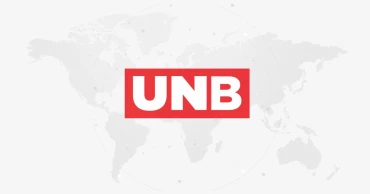
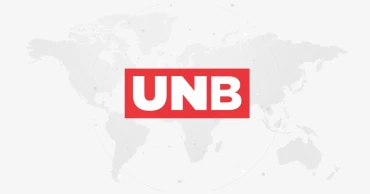
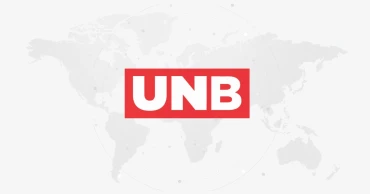
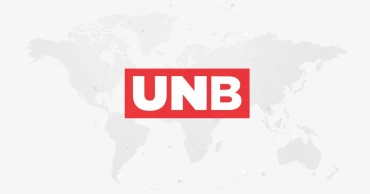
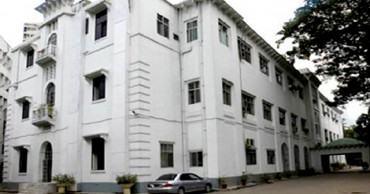
.jpg)
.jpg)
.jpg)
.jpg)
